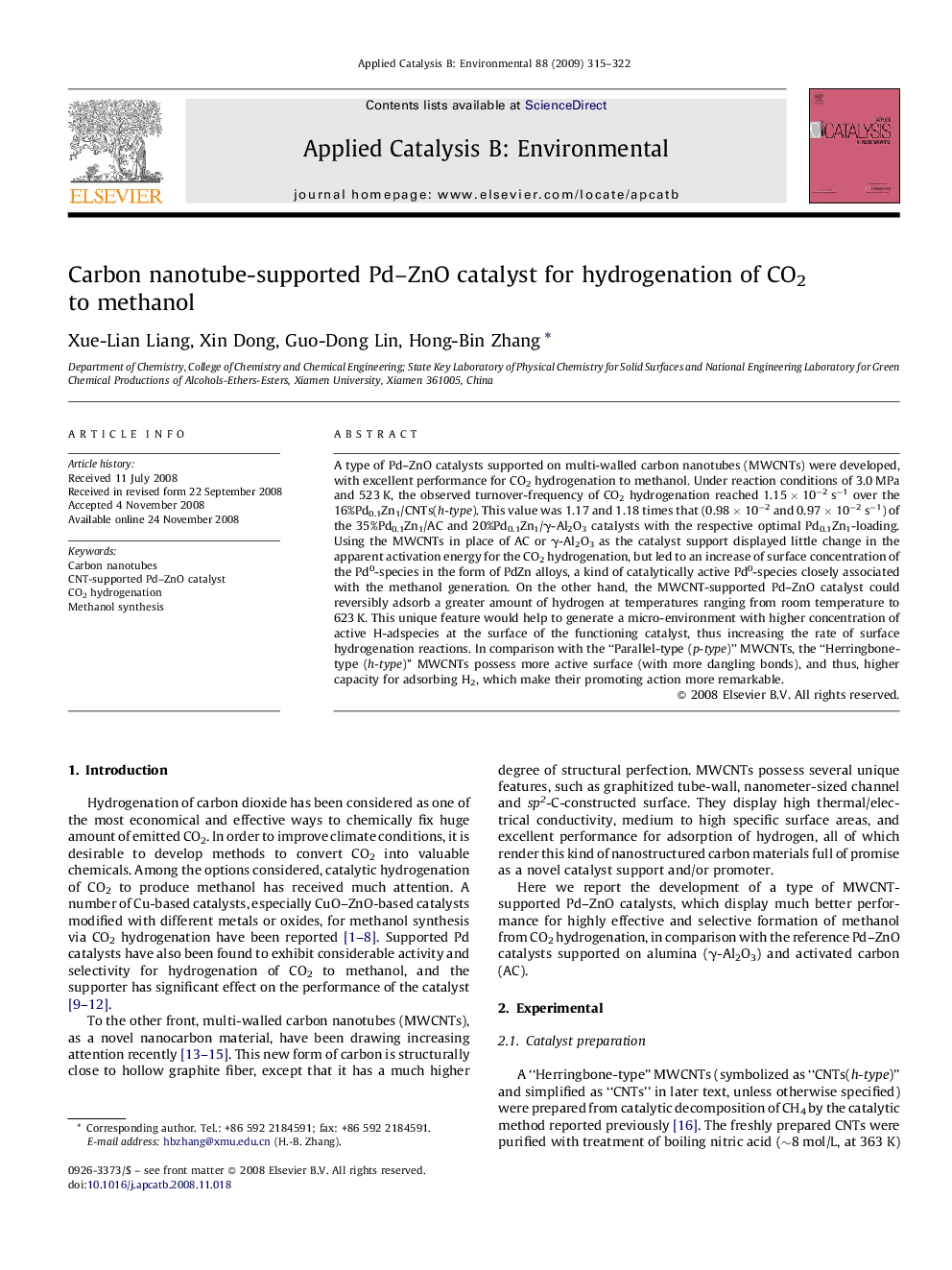| Article ID | Journal | Published Year | Pages | File Type |
|---|---|---|---|---|
| 47980 | Applied Catalysis B: Environmental | 2009 | 8 Pages |
A type of Pd–ZnO catalysts supported on multi-walled carbon nanotubes (MWCNTs) were developed, with excellent performance for CO2 hydrogenation to methanol. Under reaction conditions of 3.0 MPa and 523 K, the observed turnover-frequency of CO2 hydrogenation reached 1.15 × 10−2 s−1 over the 16%Pd0.1Zn1/CNTs(h-type). This value was 1.17 and 1.18 times that (0.98 × 10−2 and 0.97 × 10−2 s−1) of the 35%Pd0.1Zn1/AC and 20%Pd0.1Zn1/γ-Al2O3 catalysts with the respective optimal Pd0.1Zn1-loading. Using the MWCNTs in place of AC or γ-Al2O3 as the catalyst support displayed little change in the apparent activation energy for the CO2 hydrogenation, but led to an increase of surface concentration of the Pd0-species in the form of PdZn alloys, a kind of catalytically active Pd0-species closely associated with the methanol generation. On the other hand, the MWCNT-supported Pd–ZnO catalyst could reversibly adsorb a greater amount of hydrogen at temperatures ranging from room temperature to 623 K. This unique feature would help to generate a micro-environment with higher concentration of active H-adspecies at the surface of the functioning catalyst, thus increasing the rate of surface hydrogenation reactions. In comparison with the “Parallel-type (p-type)” MWCNTs, the “Herringbone-type (h-type)” MWCNTs possess more active surface (with more dangling bonds), and thus, higher capacity for adsorbing H2, which make their promoting action more remarkable.
